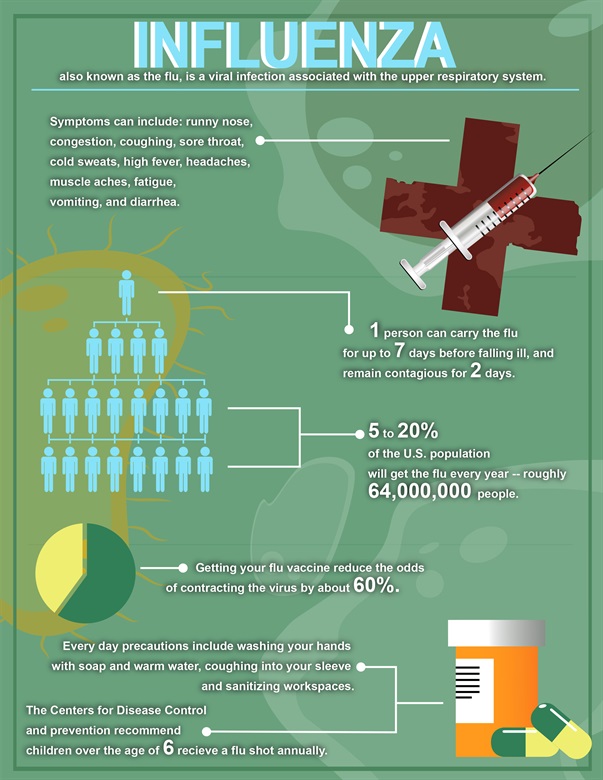Flu Q&A
Health Services Director Deb Raymond Gives Tips & Insights for Flu Season
February 13, 2018
 Creative Commons
Creative Commons
Q: How many SAD 1 students got the flu vaccination?
A: Over 500 students, 150 staff, and 60 at the Opportunity Training Center.
Q: What are some of the best ways to prevent the flu?
A: Make sure you wash your hands for twenty seconds. That’s the ABC song once or
Happy Birthday twice. You should cover your coughs to make sure you don’t spread bacteria around to others. Plenty of rest is important too. You should drink lots of water to stay hydrated and stay home if you aren’t feeling well.
Q: Do you know anyone who has had or has the flu?
A: Well, I can’t disclose any personal information, but yes, we’ve had a few confirmed cases in the Presque Isle area.
Q: Are you concerned about the number of deaths the flu has caused?
A: A little bit. Typically influenza causes 36,000 deaths nationwide, but the number of pediatric deaths is concerning especially because we’re only halfway through the flu season. I haven’t heard of that many pediatric deaths.
Q: Are you still giving out flu shots?
A: Not at the school, because we are all out of vaccines here, but it isn’t too late for you to get one.
Q: Are parents concerned about an outbreak in the school?
A: Sometimes concerned parents call, but usually nurses let the parents know about the illnesses.
Q: What is your opinion on vaccinations?
A: Vaccinations work. A lot of folks out there believe the flu shot makes you sick, but that’s not true. What they get is a weakened or sometimes dead variation of the flu. The people who don’t believe vaccinations usually think that because we don’t see the things that they prevent, like polio. Since there isn’t polio in the United States, people think it doesn’t work, but because we have vaccinations, there isn’t any polio in the U.S.
Q: Why is the flu so bad this year?
A: Well, I can’t tell you for certain, but before flu season starts the doctors try to guess what strain will be most prominent that year. Only about 30% of the vaccinations work this year. They mustn’t have guessed very well this year!
Q: How do you know if you have the flu, or a cold?
A: There are some handy charts you can use to see if what you have is a cold, or the influenza virus. The most common symptoms for the flu are fevers of 100 degrees or more, a cough or sore throat, and aches.

